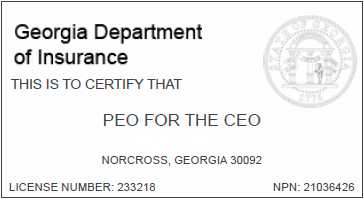Employer Group Life vs. Individual Life Insurance: Understanding Your Options
Life insurance is a crucial tool for protecting your loved ones financially in case of your passing. But with so many options available, it can be confusing to know where to start. This article explores the two main categories: employer-sponsored group life insurance and individual life insurance.
Employer Group Life Insurance: Convenience with Limits
Many employers offer group life insurance as a benefit. It’s a convenient option with typically lower premiums because the insurance company spreads the risk across a large pool of employees. However, there are key limitations:
- Coverage Limits: Group life insurance often provides a basic benefit, usually one or two times your annual salary. This may not be enough to cover your family’s financial needs.
- Lack of Control: You have little control over the policy details. The coverage amount and terms are set by your employer.
- Portability Issues:
Employer-sponsored life insurance is tied to your employment. If you leave your job, you lose the coverage, unless the plan allows conversion to an individual policy (which might come with higher premiums).

Individual Life Insurance: Tailored Coverage and Control
Individual life insurance offers more flexibility and control. You choose the coverage amount, policy term (length), and type of policy that best suits your needs. Here’s a breakdown of the two main types of individual life insurance:
- Term Life Insurance: This is the most affordable option. It provides a death benefit for a specific period (the term) but doesn’t accumulate cash value. It’s ideal for those who need coverage for a specific time frame, like raising children or paying off a mortgage.
- Whole Life or Universal Life Insurance: These are permanent life insurance policies that offer both a death benefit and a cash value component. The cash value grows over time and can be accessed through loans or withdrawals. These policies are generally more expensive than term life insurance but can provide additional benefits like tax-advantaged savings.
PEOs: Streamlining Benefits for Businesses
Professional Employer Organizations (PEOs) can be a valuable resource for businesses, especially when it comes to employee benefits. PEOs co-employ your staff, allowing them to offer group benefits like life insurance to your employees at potentially lower rates due to their larger pool of insured individuals. This can be a win-win for both businesses and employees.
With over 600 PEO companies, how do you choose? As your dedicated PEO broker, we take a holistic approach to finding the right PEO partner for your business, helping you maximize your savings potential and avoid any undue risks.
Additionally, as a licensed life insurance broker, I can help you secure a personalized quote for an individual plan. Feel free to reach out to me at Suzanna@PEOfortheCEO.com or schedule a chat with us.
Visit PEOfortheCEO.com to learn more.
The post Employer Group Life vs. Individual Life Insurance: Understanding Your Options appeared first on PEO For The CEO.
About Suzanna Martinez
Suzanna Martinez is the founder of PEO For The CEO, bringing
20+ years of experience working for multiple PEO companies.
She has guided hundreds of businesses in Georgia and Colorado
to streamlined HR operations and significant cost savings.
Suzanna specializes in negotiating large-group health insurance
rates and matching businesses with the right PEO partner.


